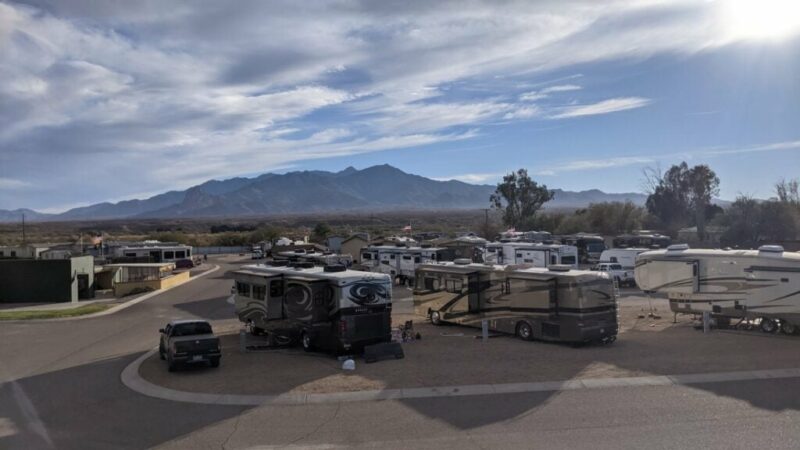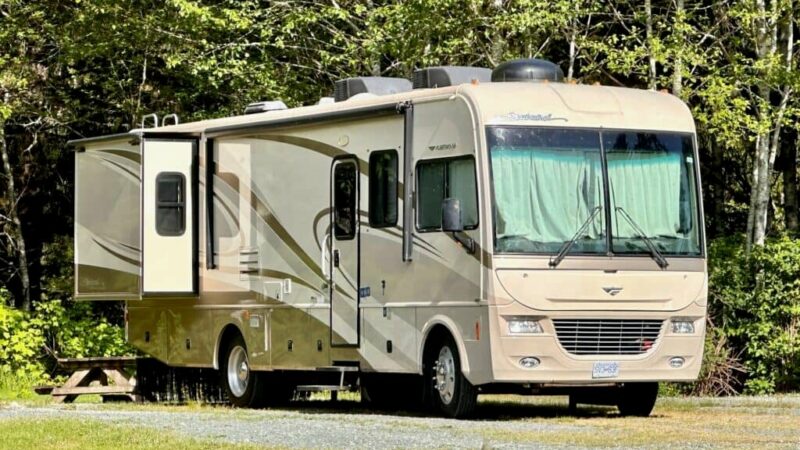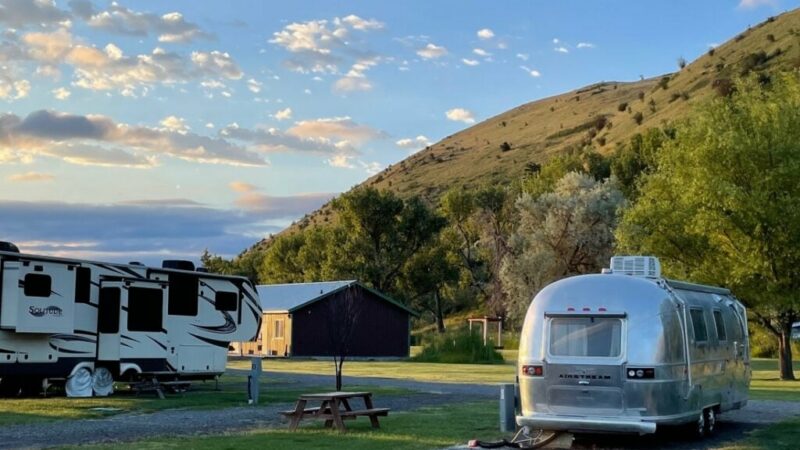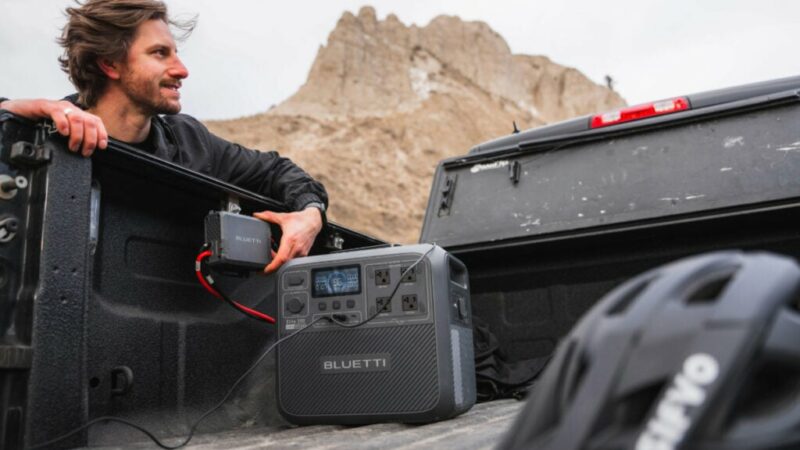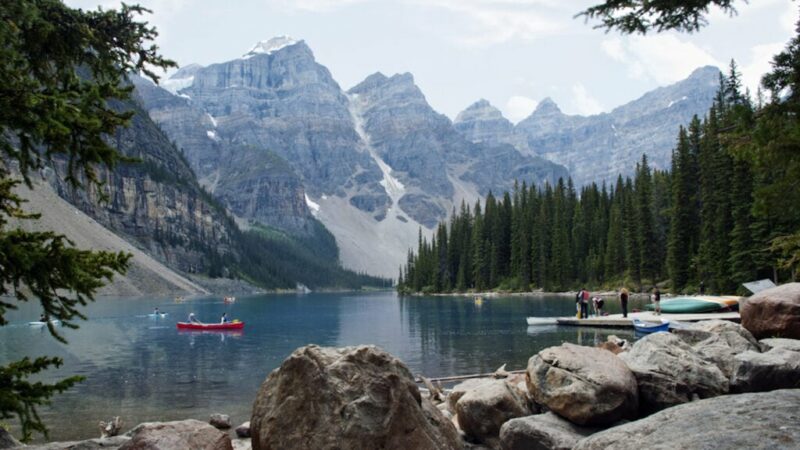RVing in Freezing Weather? Here’s What to Do Before, During, and After the Storm
As RVers, our sense of adventure sometimes puts us in freezing weather when we least expect it. We hunker down in campers that usually aren’t built for such cold. Then we try to stay warm and survive the ordeal without too much damage. Usually our worst fears aren’t realized, as long as we know what to do before, during, and after a blizzard, snowstorm, or other dramatic winter weather event.
I’ve put an electrical outlet in my wet Bay with a small 170 watt heater plugged in to a thermostat plug to go on 37 off @ 50. I have put heater coil cable on all my exposed cold and hot water lines and foam insulation, wrapped them secured with wire ties. I also wrapped the black and gray drain lines with heater coil and wrapped them in fiberglass aluminum foiled insulation with an extra layer of gorilla duct tape! Come and get me Jack Frost!
@Johnynorthland, Jayco Owners Forum, 1st time camper in freezing weather
Before the Storm: How to Prepare for Severe Cold in an RV
We are lucky enough to live in an era with excellent RV trip planning tools that help us chase good weather as much as possible. But freezing weather can hit almost anywhere and any time we travel. Even the best all-weather RVs are no guarantee against cold weather damage and discomfort. So when freezing temperatures suddenly hit and you can’t go buy RV tank heaters and RV skirting at the last minute, what can you do?
There are plenty of things you can do to stay warm in your RV to avoid winter camping mistakes. Keep reading for some of the best examples.
Below 20 degrees I fill the water tank and disconnect from the outside faucet. I put some antifreeze in the empty gray and black tank so that the valves don’t freeze. Not a long term solution, but just for those few below freezing nights.
@Sullivanclan, iRV2 Forums, Cold Weather RV Camping
Basic Shopping List of Items for RVing in Freezing Weather
Staying warm in an RV during freezing cold is not too difficult or expensive. The cheapest and fastest way to prepare for cold weather in your RV is to swing by a Walmart or hardware store and get the following basic items for your RV:
Prep the RV for Freezing Weather
Back at the campsite, it’s time to get your rig ready by doing the following:
- Fill your freshwater tank and disconnect your water hose. If the severe weather won’t last more than a day or two, and you didn’t spring for a heated water hose or plumbing heat cable, you’ll need to live off your on-board water supply. Fill it about 3/4 full to leave room for expansion, just in case the water freezes. This can prevent your water tank from splitting. Then disconnect your hose from the campground water connection.
- Empty and stow your hoses. Don’t let any hoses sit outside where liquids can pool and freeze inside them. Empty, coil, and stow to avoid frozen hoses you can’t roll up the next day.
- Fill up on propane. Fill your RV propane tanks and be prepared to use all of your fuel if the freezing temperatures last more than a couple of days.
- Open cabinet doors. Keep warm air moving in the RV and allow it to reach your plumbing pipes by cracking every cabinet door, especially at night.
- Consider bringing in your slide-outs. If heavy snow is inevitable and you won’t be too uncomfortable by doing so, bring in your slides at night to prevent snow build-up and icing on top.
- Keep your thawing tools handy. RVing in freezing weather means being prepared with tools to de-ice your camper. A step ladder and roof brush are handy, so you can push snow off your RV slideout if you left it extended overnight. A hair dryer is also handy to defrost any exterior valves or connections that freeze up overnight.
Also, know what to do if your refrigerator stops working. If you have an absorption refrigerator, this issue is pretty common in freezing weather. Here’s what to do before a storm if you are plugged into shore power:
Whatever you do, don’t try to outsmart the weather by skimping on electricity and propane use. Remember that your RV is not as insulated and weather-proof as a sticks-and-bricks house. Respect the cold and live to tell about it.
You can try to 4 season your rig but it takes a bit of work. I used 12v heating pads and wrapped all the external plumbing with insulation then foil which was a poor solution. Even the plumbing inside a “sealed underbelly” can easily freeze (water pump etc) unless you keep the furnace running pretty high. I froze my fresh water system more than once because I was trying to conserve propane and battery
@Iceclimber, iRV2 Discussion Forums, Cold Weather RV Camping
During the Storm: How to Keep Yourself Warm and Safe
After the Storm: Where to RV Next?
Once the danger of a storm is behind you, take time to celebrate with a warm camping cocktail. But don’t assume it’s safe to start moving again. There could be road closures and storm damage blocking the route you wanted to take.
Research your trip options by using RV LIFE Trip Wizard. Not only can it help you find RV-friendly roads into better weather, but it can help you create a Plan B route with alternative campgrounds, just in case your trip plans change because of another severe weather event.
One you’re back in good weather, assess how your RV and winter gear performed during the storm. Is there a better way to stay more comfortable during the next freezing weather event? If your experience with cold weather RVing was less than ideal, consider investing in simple solutions like RV tank heaters, or perhaps it’s time to buy a better four-season RV.
Anything can happen in this lifestyle but one thing is certain: RVing in freezing weather is going to happen more than once a year. It’s not hard or expensive to be prepared for it, once you know how.
Related Articles About RVing in Cold Temperatures
Avoid These Cold Weather Camping Mistakes We’ve Made
10 Smart Energy Saving Products for Winter RVing
The Best Winter Camping Gear For RVers
Can Travel Trailers Be Used for Winter Camping?
The post RVing in Freezing Weather? Here’s What to Do Before, During, and After the Storm appeared first on RV LIFE.


